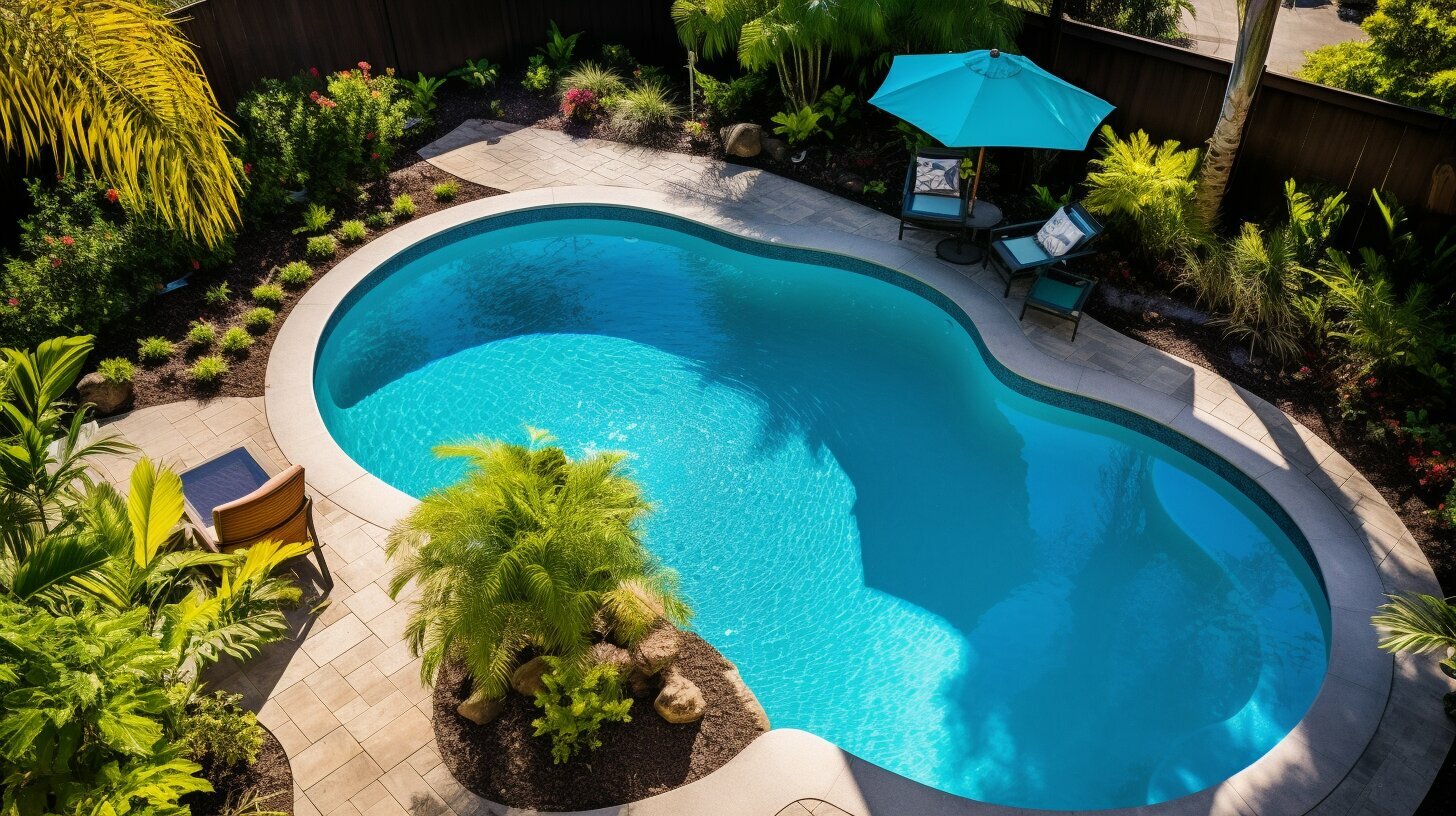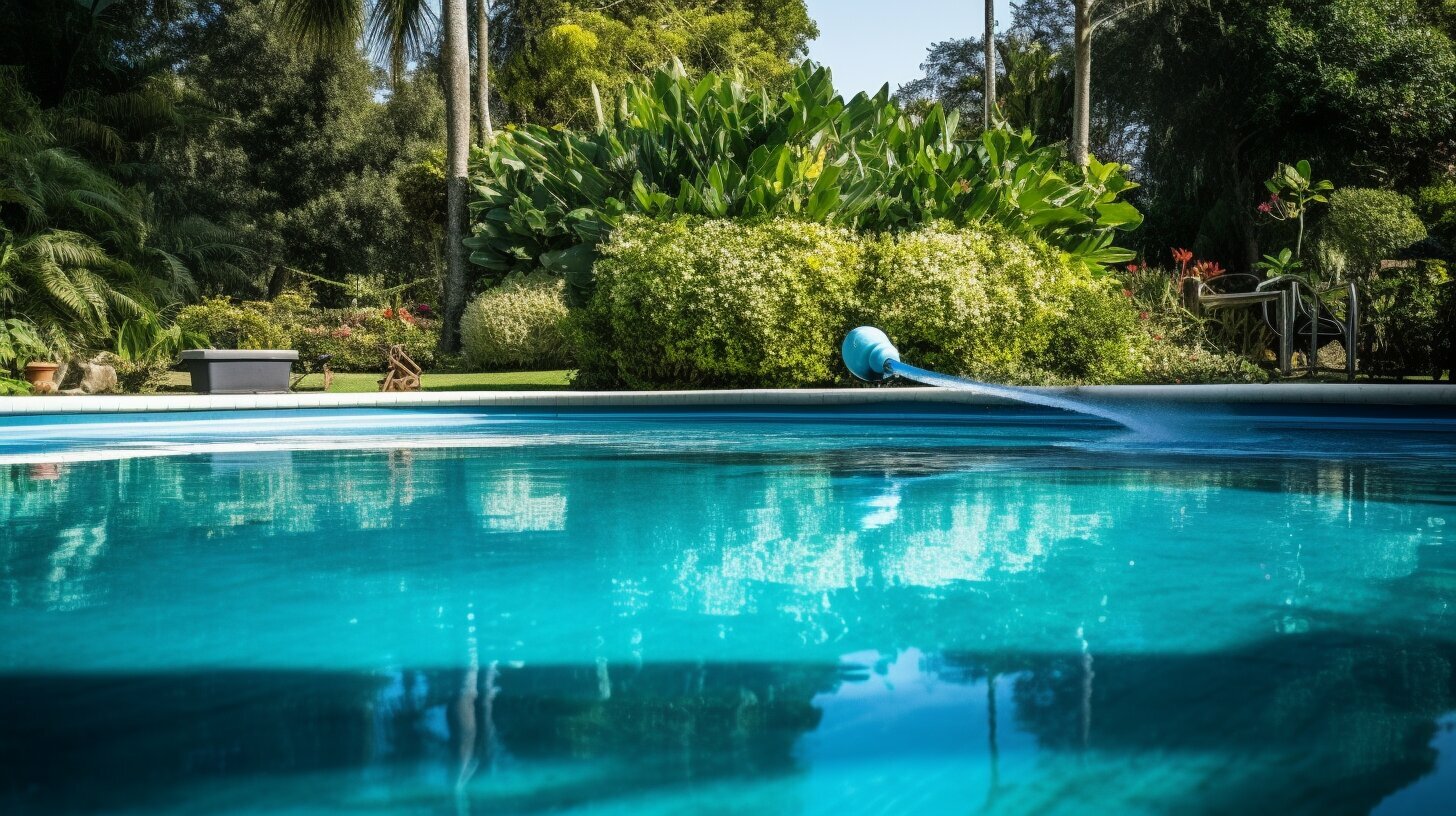
As a professional journalist in the field of pool equipment, I understand the importance of choosing the right pool heater for your inground pool. With so many options available on the market today, it can be overwhelming to select the best one. That’s why I’ve put together this comprehensive guide to help you choose the best gas pool heater for your inground pool in 2024.
Gas pool heaters for inground swimming pools are a popular choice among pool owners due to their efficiency, reliability, and ability to heat pools quickly. However, with many gas pool heaters available in the market, it can be challenging to decide which one to buy.
In this article, I’ll highlight the top-rated gas pool heaters for inground pools that offer the best performance, reliability, and energy efficiency. I’ll also provide you with important factors to consider when choosing a gas pool heater, such as energy efficiency and durability.
If you’re searching for the best gas pool heaters for inground pools and want to make an informed decision, keep reading as I delve into the top-rated gas pool heaters, their features, performance, and customer reviews.
By the end of this article, you’ll be equipped with all the information you need to confidently select and purchase the best gas pool heater for your inground pool to have an enjoyable swimming experience.
Why Choose Gas Pool Heaters for Inground Pools?
When it comes to heating your inground pool, gas pool heaters are a popular and reliable choice. Gas heaters work by using either natural gas or propane to heat the water as it passes through the heater. This method is quick and efficient, making it ideal for those who want a warm pool in a hurry.
There are many reasons to choose a gas pool heater for your inground pool. Firstly, gas heaters are known for their reliability. They have a long lifespan and can withstand harsh weather conditions, making them a durable option for year-round use.
Another advantage of gas heaters is their ability to heat pools quickly. Unlike electric heat pumps, which can take longer to bring the water up to temperature, gas heaters can heat the water in a matter of hours. This means you can enjoy your pool whenever you want, without having to wait for it to warm up.
Gas pool heaters are also efficient, meaning they’ll save you money on energy costs in the long run. While they may have a higher upfront cost than other types of pool heaters, such as solar pool heaters, their efficiency will pay off in the long run.
Gas Pool Heaters vs. Other Types of Pool Heaters
Gas pool heaters are not the only option when it comes to heating your inground pool. Electric heat pumps, propane heaters, and solar heaters are also popular choices. However, each type has its own advantages and disadvantages.
Electric heat pumps are efficient but can take longer to heat the water. Propane heaters are similar to gas heaters but often require a separate tank, which can be inconvenient. Solar heaters are eco-friendly but rely on sunlight, which may not be sufficient in areas with limited sunlight.
Overall, gas pool heaters are a reliable and efficient choice for most inground pools. However, it’s important to consider your specific needs and budget when choosing a pool heater.
Factors to Consider When Choosing Gas Pool Heaters
Choosing the right gas pool heater for your inground pool is a significant decision that can impact your swimming experience. To ensure you select the best heater for your needs, it is important to consider several factors:
Efficiency
Efficiency is a crucial factor to keep in mind when choosing a gas pool heater. Look for models with a high energy efficiency rating, as this will help you save money on your energy bills. Gas pool heaters with energy-saving features, such as an automatic shut-off switch, can also help reduce energy waste.
Durability
Opt for gas pool heaters made of durable materials, as they are likely to last longer and require fewer repairs. Some high-quality gas pool heaters come with a cupro-nickel heat exchanger, which is resistant to corrosion and can withstand harsh pool chemicals and high heat levels.
Cost
The cost of a gas pool heater is another important factor to consider. Look for models that offer a balance between cost and quality. While cheaper options may be tempting, investing in a higher-quality pool heater can save you money in the long run by requiring fewer repairs and lasting longer.
Size
The size of your gas pool heater is critical in ensuring it can properly heat your pool. Consider the size of your pool and the desired temperature you wish to maintain when selecting a gas pool heater. Typically, larger pools require heaters with higher BTU ratings to heat them efficiently.
Maintenance
Regular maintenance is necessary to keep your gas pool heater functioning optimally. Look for models that are easy to maintain and clean. Additionally, ensure that the gas line and heat exchanger are regularly inspected and cleaned to prevent any potential malfunctions.
Summary
When choosing a gas pool heater for your inground pool, remember to prioritize efficiency, durability, cost, size, and maintenance. Considering these factors will help you make an informed decision and select a gas pool heater that is best suited for your needs.
Top Picks for the Best Gas Pool Heaters for Inground Pools
When it comes to finding the best gas pool heater for your inground pool, it can be overwhelming to sift through all the options available on the market. That’s why I’ve put together a list of top-rated gas pool heaters that are known for their high-performance and reliability. Below are my top picks:
| Gas Pool Heater | BTU Rating | Customer Rating |
|---|---|---|
| Pentair MasterTemp | 400,000 | 4.5 stars |
| Jandy JXi | 400,000 | 4.7 stars |
| Hayward H400FDN | 400,000 | 4.6 stars |
These gas pool heaters are all highly efficient and have a BTU rating of 400,000, making them suitable for larger pools. The Pentair MasterTemp is a popular choice among pool owners for its user-friendly digital display and compact design, making it easy to install and operate. The Jandy JXi is known for its fast heat-up time and patented VersaFlo integrated bypass technology, while the Hayward H400FDN boasts a cupro nickel heat exchanger for superior durability and corrosion resistance.
Don’t just take my word for it, these gas pool heater reviews speak for themselves. These top-rated pool heaters have garnered high customer ratings for their performance and reliability, making them a wise investment for any pool owner.
Gas Pool Heaters vs. Other Types of Pool Heaters
When it comes to heating your inground pool, there are several options available, but gas pool heaters are among the most popular. However, before making your final decision, it’s important to understand how gas pool heaters compare to other types of pool heaters, such as electric heat pumps, propane heaters, and solar heaters.
Gas Pool Heaters
Gas pool heaters are known for their efficiency and ability to heat pools quickly. They are powered by either natural gas or propane and use a heat exchanger to transfer heat to the pool water. Gas pool heaters are an excellent choice for those who want to heat their pool quickly and maintain a consistent temperature regardless of the weather conditions. They are also a great option for larger pools that require more heat.
Electric Heat Pumps
Electric heat pumps are another popular option for heating inground pools. They work by converting the outside air into heat and transferring it to the pool water. Electric heat pumps are energy-efficient and cost-effective, but they are not as effective in colder weather. They also require a larger initial investment than gas pool heaters.
Propane Pool Heaters
Propane pool heaters work similarly to gas pool heaters, but they are powered by propane instead of natural gas. Propane pool heaters are a good option for those who do not have access to a natural gas line. However, propane is more expensive than natural gas, so operating costs may be higher in the long term.
Solar Pool Heaters
Solar pool heaters use the sun’s energy to heat the pool water. They are environmentally friendly and cost-effective, as they rely on a free and renewable source of energy. However, they are not as effective during cloudy weather or at night, and they require a larger initial investment than gas pool heaters. They are best suited for pools in warmer climates with plenty of sun exposure.
When choosing a pool heater, it’s important to consider your specific needs and budget. Each type of pool heater has its own advantages and disadvantages, so it’s important to weigh your options carefully. Gas pool heaters are an excellent choice for those who want to heat their pool quickly and maintain a consistent temperature, but electric heat pumps, propane heaters, and solar heaters may be better options depending on your individual circumstances.
Installation and Maintenance of Gas Pool Heaters
Proper installation and regular maintenance are crucial for getting the most out of your gas pool heater. Here are some key factors to keep in mind:
- Pool Heater Installation: It’s important to have a professional install your gas pool heater, especially when it comes to connecting the gas line. A qualified technician can ensure that the gas line is properly connected and that the heater is installed according to manufacturer specifications.
- Pool Maintenance: Regular maintenance is necessary to keep your pool heater running efficiently. This includes cleaning the heat exchanger, checking gas connections, and inspecting the pool heater for any signs of wear or damage.
Here are some specific tips for pool heater installation and maintenance:
| Installation Tips | Maintenance Tips |
|---|---|
| Make sure the gas line is the proper size for the heater | Inspect the heat exchanger for any signs of corrosion or buildup |
| Ensure the gas line is connected properly and check for leaks | Clean the heater’s burner assembly and pilot light |
| Place the heater on a stable, level surface | Check the gas connections for any signs of wear or damage |
| Position the heater away from any flammable materials | Inspect the pool heater for any signs of physical damage |
By following these installation and maintenance tips, you can ensure that your gas pool heater runs efficiently and provides reliable heating for your inground pool.
Finding the Right Sized Gas Pool Heater for Your Inground Pool
Choosing the right-sized gas pool heater for an inground pool is crucial to ensure optimal heating performance. The size of your pool and its BTU rating are key factors to consider when selecting a pool heater. A pool that is too large for the heater may take a long time to heat up, while a heater that is too large may lead to unnecessary energy consumption and higher costs.
The size of your pool is measured in gallons, and the BTU rating of your pool heater refers to the amount of heat it can produce per hour. Typically, the larger the pool, the higher the BTU rating required for effective heating. For example, a 400,000 BTU gas pool heater is suitable for a pool that holds up to 100,000 gallons, while a 200,000 BTU heater is adequate for a pool that holds up to 50,000 gallons.
To find the right-sized gas pool heater for your pool, it’s essential to calculate your pool’s surface area and determine its BTU requirement. You can use online calculators and consult with pool professionals to determine the appropriate size for your specific pool.
How to Calculate the BTU Rating:
- Calculate your pool’s surface area in square feet.
- Multiply the surface area by 12. This gives you the required BTUs to increase the pool temperature by 1 degree Fahrenheit in 12 hours.
- Multiply the result by the desired temperature rise (in degrees Fahrenheit). This gives you the total BTU requirement.
| Pool Size (Gallons) | Minimum Required BTU Rating |
|---|---|
| 25,000 or less | 200,000 |
| 25,000 to 40,000 | 250,000-300,000 |
| 40,000 to 50,000 | 350,000-400,000 |
| 50,000 or more | 400,000 or more |
Keep in mind that larger pools or those located in colder climates may require additional BTUs for effective heating. By selecting the right-sized gas pool heater, you can ensure optimal heating performance and energy efficiency for your inground pool.
Understanding the Cost and Efficiency of Gas Pool Heaters
Gas pool heaters are a popular choice for pool owners due to their efficiency and ability to heat pools quickly. However, it’s important to consider the cost and efficiency factors before investing in one for your inground pool.
Natural Gas or Propane?
When it comes to gas pool heaters, there are two main options: natural gas and propane. Natural gas heaters are connected to a natural gas line, while propane heaters rely on a propane tank. While natural gas is generally less expensive than propane, it’s important to consider the availability of a natural gas line in your area.
Cupro Nickel Heat Exchanger
Another important factor to consider is the type of heat exchanger used in the gas pool heater. Cupro nickel heat exchangers are more durable and resistant to corrosion than standard copper heat exchangers, making them a better choice in areas with high water flow or high chlorine levels.
Pool Temperature
The size of your pool and desired temperature are also important considerations when choosing a gas pool heater. The BTU rating of a heater determines how quickly it can heat the water in your pool. A larger pool or a desire for a higher pool temperature will require a heater with a higher BTU rating.
Efficiency
Finally, it’s important to consider the overall efficiency of a gas pool heater. Look for models with high energy efficiency ratings to save on operating costs in the long run. Additionally, regular maintenance and cleaning can help keep your heater running efficiently.
Conclusion
In conclusion, choosing the best gas pool heater for inground pools is crucial to ensure that your pool stays warm and comfortable throughout the year. With so many options available on the market, it’s essential to consider your specific needs and the factors discussed in this article, such as energy efficiency, durability, and pool size.
By selecting a high-performance gas pool heater, you can enjoy the benefits of quick and efficient heating without breaking the bank. It’s important to note that proper installation and maintenance of the heater are also critical factors in ensuring its longevity and optimal performance.
Whether you opt for a natural gas or propane pool heater, be sure to select a reputable brand and consult with a professional installer to ensure that the gas line and heat exchanger are installed correctly and safely.
Overall, investing in a reliable and efficient gas pool heater will not only enhance your swimming experience but also provide a cost-effective solution for pool heating that will last for years to come.
FAQ
What are the advantages of using gas pool heaters for inground pools?
Gas pool heaters for inground pools offer several advantages, including high efficiency, reliability, and the ability to heat pools quickly. They are a popular choice among pool owners due to their effective heating capabilities.
What factors should I consider when choosing gas pool heaters?
When selecting gas pool heaters for inground pools, it’s important to consider factors such as energy efficiency, durability, and other features that meet your specific requirements. This ensures you choose a heater that best suits your needs.
What are the top picks for the best gas pool heaters for inground pools in 2024?
In 2024, some of the top-rated gas pool heaters for inground pools include [product 1], [product 2], and [product 3]. These heaters have received positive reviews for their performance, features, and customer satisfaction.
How do gas pool heaters compare to other types of pool heaters?
Gas pool heaters offer benefits such as efficiency, quick heating, and reliability. However, they differ from other pool heaters such as electric heat pumps, propane heaters, and solar heaters. Understanding the pros and cons of each type will help you make an informed decision.
What is involved in the installation and maintenance of gas pool heaters?
Installing a gas pool heater requires considerations such as gas line requirements and heat exchanger maintenance. It’s important to follow proper installation procedures and perform regular maintenance to ensure optimal performance and longevity.
How do I determine the right-sized gas pool heater for my inground pool?
Selecting the appropriate size of a gas pool heater depends on factors such as pool size and BTU rating. It’s essential to consider these factors and follow guidelines provided by manufacturers to ensure efficient heating for your specific pool size.
What are the cost and efficiency factors of using gas pool heaters?
Gas pool heaters can use either natural gas or propane as fuel. Understanding the differences between the two, the importance of a cupro nickel heat exchanger, and the impact on pool temperature can help you make an informed decision based on cost and efficiency considerations.
Quick Navigation
- Why Choose Gas Pool Heaters for Inground Pools?
- Factors to Consider When Choosing Gas Pool Heaters
- Top Picks for the Best Gas Pool Heaters for Inground Pools
- Gas Pool Heaters vs. Other Types of Pool Heaters
- Installation and Maintenance of Gas Pool Heaters
- Finding the Right Sized Gas Pool Heater for Your Inground Pool
- Understanding the Cost and Efficiency of Gas Pool Heaters
- Conclusion
- FAQ







